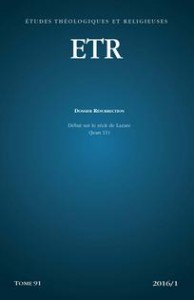Au premier abord, l’appel adressé à Abraham est formulé d’une manière surprenante en hébreu. Son aspect réfléchi fait qu’il est souvent expliqué comme une invitation à une quête de soi. Cependant, l’observation d’autres occurrences de l’Ancien Testament montre d’une part que cette tournure « lekh-lekha » (va pour toi) est courante, et, d’autre part qu’elle est utilisée dans des contextes variés. L’approche philologique menée par Innocent Himbaza, qui étudie spécialement son sens littéral, révèle que cette tournure renforce le lien entre la personne agissante et l’action qu’elle doit accomplir. Il s’agit d’une stimulation du sujet visant à accomplir l’action véhiculée par le verbe.
At first, the call to Abraham is formulated surprisingly in Hebrew. His appearance reflected that it is often described as an invitation to a search for self. However, the observation of other Old Testament occurrences shows firstly that this turn « lekh-lekha » (goes to you) is common, and on the other it is used in various contexts . The philological approach led by Innocent Himbaza that specifically examines its literal meaning, reveals that this turn strengthens the link between the acting person and the action it should perform. This is a stimulation of the subject to perform the action conveyed by the verb.
p. 21-34
Auteur
HIMBAZA Innocent
Innocent HIMBAZA est maître d'enseignement et de recherche à la Faculté de théologie de l'université de Fribourg en Suisse.
